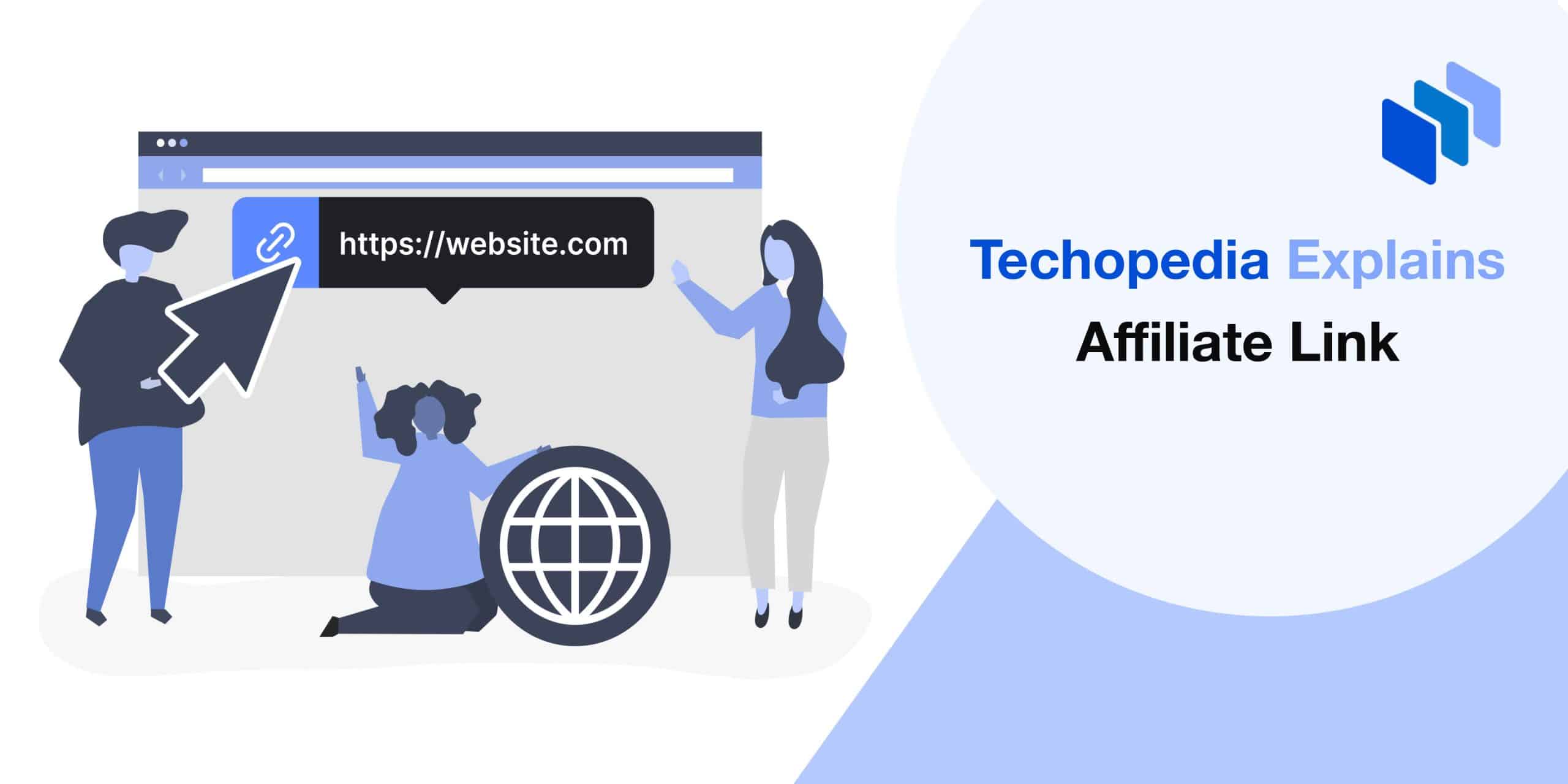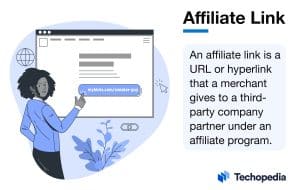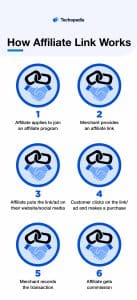What is an Affiliate Link?
The definition of an affiliate link is a URL or hyperlink that a merchant gives to a third-party company partner under an affiliate program. The link contains an affiliate’s ID or username, and is used to record traffic as it’s sent to an advertiser’s website.
Key Takeaways
- An affiliate link is used to route traffic to an affiliate website.
- It’s used as part of an affiliate marketing program.
- Companies can get a commission in return for clicks.
- Merchants get new customers, and websites can recommend relevant products.
- Affiliate links should be used transparently.
What is Affiliate Marketing?
Affiliate marketing is an approach to marketing in which a company markets products and services on behalf of a third-party company or merchant in exchange for a commission.
Under this arrangement, the affiliate searches for a product relevant to its audience and promotes it on the site using an affiliate link. If the user clicks the link and then makes a purchase, the affiliate gets a percentage of that sale.
These arrangements are a win-win in the world of digital marketing because the affiliate can use the affiliate program to monetize its readership and recommend relevant products, while the merchant gets an opportunity to market its products toward a new audience.
How Affiliate Link Works
Companies apply to join a merchant’s affiliate program. Upon acceptance, they will be provided with an affiliate link, which will be used to monitor how many sales the affiliate makes.
Generally, each affiliate link contains the seller’s URL, a tracking parameter, and a unique affiliate ID. The seller URL directs the user to the site, the tracking parameter helps identify the publisher or brand, and the affiliate ID is an identifier assigned to the affiliate to help record how many sales they have generated.
How to Get an Affiliate Link
As mentioned above, to get an affiliate link, a company first needs to sign up for a third-party service’s affiliate program. Examples of affiliate programs include Amazon Associates, eBay Partner Network, PartnerStack, and CJ Affiliate.
Once you’ve been accepted to your affiliate program of choice, you will be assigned an affiliate link you can use to promote the product. Under some programs, you may also be given a tool to produce an affiliate link yourself.
For example, under the Amazon Associates affiliate program, you can use the Amazon Mobile GetLink tool to generate an affiliate link, which you can then share on your website.
The Structure of an Affiliate Link
The structure of an affiliate link is the same as any other URL or hyperlink, it just has additional parameters added to the end of it.
The first part of the URL is the seller’s URL, then after the ?, you can view the tracking parameter, and 500 is the unique affiliate ID.
That said, the exact formatting of the link may vary depending on the merchant or publisher running the program.
Affiliate Links vs. Affiliate Codes
While affiliate links and affiliate codes serve a similar purpose, they are different.
The key difference is that an affiliate code is a code that a website can use to track clicks from an affiliate’s website. In short, an affiliate link includes an affiliate code that identifies the partner company.
Affiliate Link Examples
Below, we’ve included some examples of different types of affiliate links:
Affiliate Link Pros and Cons
There are a number of pros and cons to using affiliate links. Some of these include:
Pros
- Merchants can increase sales by partnering with affiliates
- Affiliates can build additional revenue streams
- Websites can provide readers with links to relevant products and promotions
- Partnering with affiliates increases a company’s reach
Cons
- The amount of commission generated by clicks varies
- Affiliate sites can lower content quality if they become too reliant on promotions
- Important to disclose affiliate relationships to the audience when using affiliate links
The Bottom Line
Now you know the true meaning of affiliate links and their role in an affiliate marketing program. The most important take-home is that they provide an income stream to companies looking to monetize their audience while giving merchants a way to maximize their reach.
If applied correctly, they’re a win-win, though websites need to be cautious about promoting relevant products and not becoming too overtly promotional and alienating users from their site.








